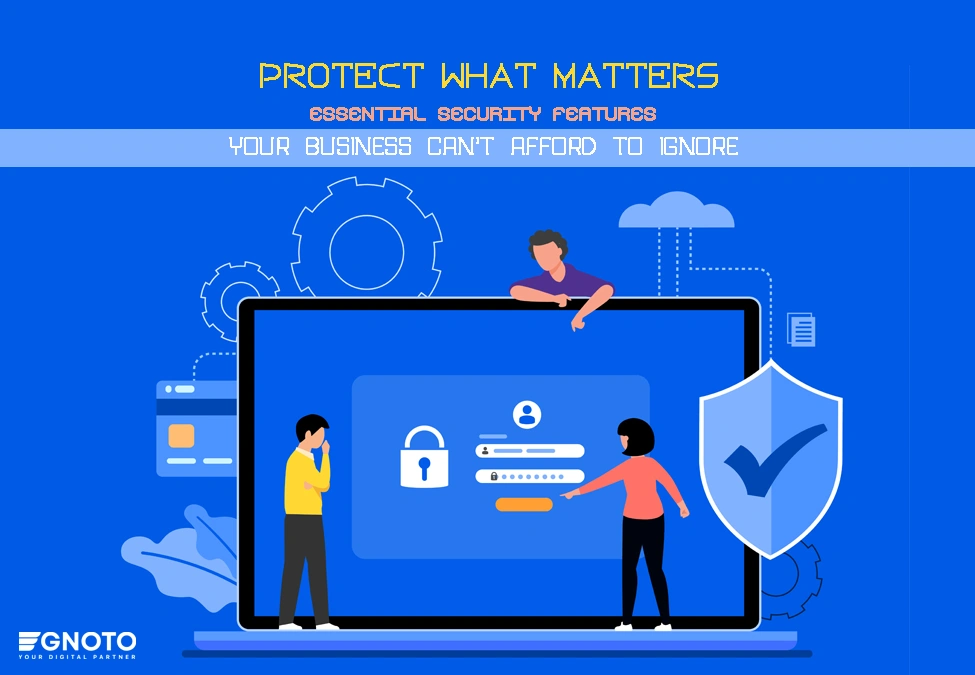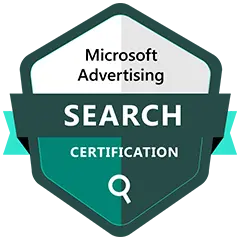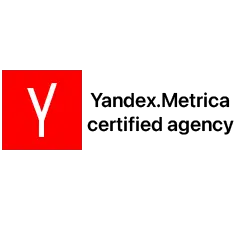Imagine your website is a little shop in a big digital city. You won’t close it up for the night or leave the front door wide open with your cash register full and the lights still on, right? That’s like asking for trouble! In the online world, it is the same thing. If you don’t lock up your digital shop, aka your website, sneaky online ‘burglars’ called hackers can walk right in.
As a business website, it holds important stuff, such as customer names and emails, payment details, your sales info, and your business reputation. So, if someone can access it, they can steal information, mess up your site, or take it down completely. Even tiny security flaws can lead to a massive digital disaster.
In fact, 43% of all cyberattacks go after small businesses, not the big fancy ones, but only 14% of them prepare to defend themselves.
Why Website Security Is NOT An Option Anymore?
The internet is full of malware and viruses that can enter your site or trick people into handing over sensitive information, like passwords, OTPs, or even credit card numbers. Small businesses are easy targets as they often don’t have strong website defenses.
If a visitor visits your website and is warned by the browser, ‘This Website Is Not Safe!’, they may not visit again ever. People only do business with companies they can trust, so your website needs to show it’s safe right from the first click. More than 90% of successful cybersecurity attacks start with a phishing email.
And guess what? Even Google pays attention. If your website isn’t secure, Google might push it way down in search results. That’s bad news when you are trying to be seen online.
So, in this blog, let’s walk through the top five security must-haves for your website. You can think of them as locks, alarms, and secret security cameras keeping your online business safe and sound.
Business Owner? These 5 Website Protections Are A Must
Once a hacker breaks in, the mess can be huge. You might lose important files, your sales could drop, customers could leave, or even worse, you might end up dealing with legal troubles. All of that takes time, money, and major headaches to fix. Thus, it’s time to keep those hackers out with these 5 website safety tools that work. Let’s see each of them in detail.
1. SSL Certificate (Secure Socket Layer)
What Is It? SSL certification is a digital lock that keeps your website data safe. It’s like building a secret, scrambled tunnel for all the information exchange between your website and its visitors. It has become a basic must-have for all professional and trustworthy websites.
When you see “https://” and a little padlock icon in your web browser’s address bar, that means an SSL certificate is active [Figure 1].
Why Is SSL Important For Your Business Website?
- It turns your website from ‘http’ to ‘https’ and shows a padlock icon in the browser.
- It protects sensitive information by scrambling passwords, usernames, credit card numbers, etc., so they can’t be intercepted.
- The padlock icon tells your visitors that the site is safe.
- Google ranks secured websites higher in search results (SERP).
Who Are Popular Providers Of SSL Certification?
- Let’s Encrypt [300 million+ active certifications]
- GoDaddy
- DigiCert
How Much Does SSL Certification Cost?
From $10 to $100+ per year. Note that pricing varies with the provider.
Did you know that 51% of the visitors will leave the site immediately if it is not secured?
2. Web Application Firewall (WAF)
What Is It? It’s a digital bouncer that blocks bad traffic before it reaches your site. WAF is like a filter that only lets the good stuff through. It checks the traffic coming to and from your website and looks for any suspicious activities or known attack patterns.
Why WAF Is Important For Your Business Website?
- It helps stop hackers, bots, and fake login attempts.
- It stops common attacks like SQL injection or cross-site scripting.
- It can tell the difference between normal website visitors and harmful bots or hackers.
What Are Popular Tools For WAF?
- Cloudflare [25 million+ websites]
- Sucuri
- Imperva
How Much Does WAF Cost?
About $20 to $100+ per month, depending on provider and features.
Did you know that the SiteLock report analyzed 7 million websites and found that most websites experience an average of 94 attacks per day and are visited by bots about 2,608 times a week?
3. Real-Time Malware Scanning
What Is It? It’s a tool that checks your site for viruses and bad code 24/7. You can think of it like an anti-virus for your website. It keeps patrolling websites for any hidden bad software, such as malware, viruses, etc.
Why Real-Time Malware Scanning Is Important For Your Business Website?
- Malware can steal customer information or crash your website. So, a real-time malware scanner ensures your website is free of harmful code that can steal data or redirect visitors to bad sites.
- Real-time scanning quickly finds harmful bugs on your website before they can spread and cause big problems.
- A clear site means your visitors are safe from accidentally downloading viruses from your site.
What Are Popular Tools For Real-Time Malware Scanning?
- Wordfence
- SiteLock
- MalCare
How Much Real-Time Malware Scanning Costs?
About $10 to $50 per month. But, it often comes in bundles with web hosting or security plans.
Did you know that every day, cybersecurity systems detect approx. 560,000 new malware threats?
4. Two-Factor Authentication (2FA)
What Is It? It’s a second step to log in, where a code is sent to your phone. You can think of it as a double lock on your front door. After you type your password, it asks for a second code that is sent to your phone or email ID.
Why 2FA Is Important For Your Business Website?
- It helps in stopping password theft. Even if the hacker steals your password, they can’t get in without that second code.
- Your website’s admin area is protected by 2FA from unauthorized access, keeping the whole site safe.
- It adds an extra step to log in, but is usually seamlessly integrated into your platform, making it easy to use.
What Are Popular Tools For 2FA?
- Google Authenticator [100 million+ downloads]
- Authy
- Duo
How Much Does 2FA Cost?
It is typically free as it’s a feature offered by the service you are using, such as your website platform or email provider.
Did you know that Google found that using an SMS code sent to your phone helped block 100% of automated bots, 96% of bulk phishing attacks, and 76% of targeted attacks and switching? Also, on-device prompts blocked 100% of bots, 99% of bulk phishing, and 90% of targeted attacks, making them an even safer choice.
5. Daily Backups
What Is It? It’s a complete copy of your website that’s saved every day or on a weekly basis, depending on the nature of your business.
Why Daily Backup Is Important For Your Business Website?
- If your site crashes, you accidentally delete files and folders, or you get hacked, you can restore it.
- You can quickly ‘roll back’ your website to a working version from a few hours or a day ago, reducing downtime and saving you a huge headache.
- You can sleep better knowing you have a backup, even if disaster strikes.
What Are Popular Tools For Daily Backup?
- UpdraftPlus [3 million+ active installs]
- Jetpack
- CodeGuard
How Much Does Daily Backup Cost?
About $5 to $30+ per month. It is mostly included with web hosting plans.
Did you know that roughly 60% of small businesses shut down within 6 months of a major cyberattack?
Don’t Skip This Essential Protection For Your Business Website
The five features we discussed above are the basics for any website. They are not extras but a must-have that holds the whole thing together and keeps the bad stuff out. If you skip even one of them, it will be like leaving a window open during a storm.
All it takes is a weak spot for a cybercriminal to sneak in and cause trouble, like stealing data, crashing your site, or costing you big money. So, don’t treat this protection as optional. These are your website’s best defense.
Need Help Setting This Up? We’ve Got You.
Just like you lock the store every night, you should always protect your website from trouble. All it takes is these security tools working together to build a tough online shield, such as –
- An SSL certificate (it shows the padlock icon and keeps info private),
- A Web application firewall (WAF) (it blocks nasty stuff trying to sneak in),
- Real-time malware scanning (like a website security guard),
- Two-factor authentication (double locks for your login),
- And daily backups (so you never lose your stuff).
So, don’t wait for a problem to happen, start building your website’s security today because when your website is secure, your business can grow with confidence.










